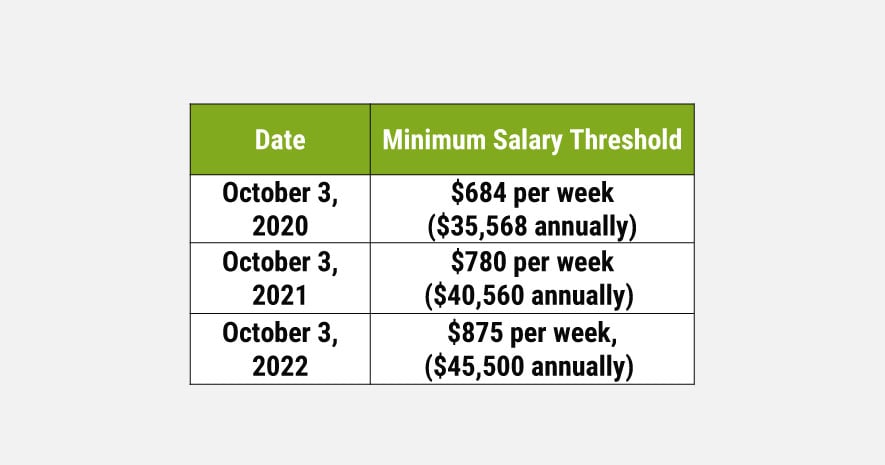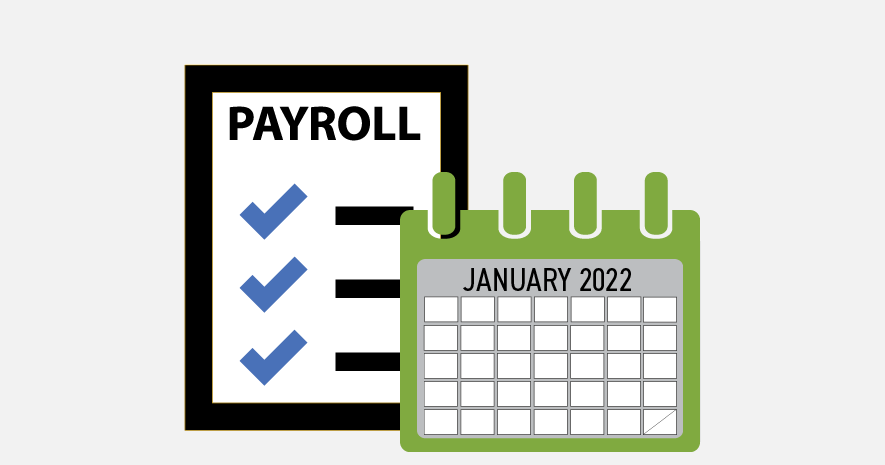Written by Kristen M. O’Connell, CPP
There have been some important updates regarding the recent Final Rule issued by the Department of Labor (DOL) concerning overtime exemption regulations under the Fair Labor Standards Act (FLSA). This significant update will take effect on July 1, 2024.
On April 23, 2024, the DOL issued its Final Rule which sharply increases the minimum salary requirement provision for the FLSA’s white-collar overtime exemption. This will affect executive, administrative, and professional employees who currently fall under this exemption from minimum wage and overtime requirements.
What You Need to Know
The minimum salary threshold for white-collar exemption will be increased in a two-step process, six months apart, with automatic increases built in every three years.
- Minimum salary threshold $844/Week ($43,888/Annually) – Effective July 1, 2024
- Minimum salary threshold $1,128/Week ($58,656/Annually) – Effective January 1, 2025
- Minimum salary threshold increases scheduled for July 1, 2027. Amount to be determined.
- Scheduled increases every three years. Amount to be determined.

If these payments are made at least annually, employers can continue using nondiscretionary bonuses, incentives, and commissions to satisfy up to ten percent of the salary amounts required. Non-discretionary bonuses are typically based on a pre-determined formula. Generally, employers and employees agree in advance on the method and timing of nondiscretionary bonuses. Specific guidelines on this option are outlined in the Final Rule.
HCE Salary Increase:
The Final Rule also increases the salary requirement for highly compensated employees (HCEs) from $107,432 to $132,964 per year on July 1, 2024, and then to $151,164 per year on January 1, 2025. The HCE level will also be adjusted every three years.
Tests Did Not Change:
The Final Rule does not change the tests for determining whether an employee is exempt.
Read the DOL summary of testing >
Employer Next Steps
Legal battles over this rule continue, but employers are strongly encouraged to review their current employee classifications, salary levels, and compensation structures to ensure compliance with the updated regulations.
Employers should identify employees who will be affected by this change and be prepared to adjust. Employees below the threshold will either need to have their salary increased or be converted to non-exempt status.
We encourage clients to take proactive steps, including speaking with their HR attorney, to understand and implement these changes within their organization.
Other Important Reminders for White-Collar Exemption
- Employers must demonstrate if an exemption applies.
- Exemptions are narrowly construed.
- Paying a salary alone does NOT make someone exempt.
- High salary is not determinative.
- Actual duties matter.
- Job titles do not matter.
Other Wage & Hour Risk Areas
- Time Clock Rounding
- Courts have become increasingly hostile to time clock rounding because sophisticated timekeeping systems have made it unnecessary.
- At a minimum, employers must use a consistent rounding method.
- Bootup Time
- Some courts have found the time spent waiting for computers to boot up worthy of compensation.
- Tracking Security Checks
- Some state courts have recognized the potential for security check time to be considered compensable, especially if the checks are extensive or required regularly.
- Other “Donning and Doffing” Laws
- The FLSA generally requires that employees be compensated for all time spent performing work-related activities. This may include donning and doffing gear and equipment if such activities are integral and indispensable to the principal activities for which the employee is employed.
With Wage & Hour Law, there are complicated compliance rules. Common sense in these situations will not result in compliance.
Federal and state requirements are not identical and are increasingly different in Pennsylvania. When the requirements converge, employers must comply with whatever is more favorable for the employee.
For questions regarding this DOL regulation, please contact your Trout CPA professional.




.jpg)

